#kidney stones and digestive issue.
Explore tagged Tumblr posts
Text
Lemon
Lemon
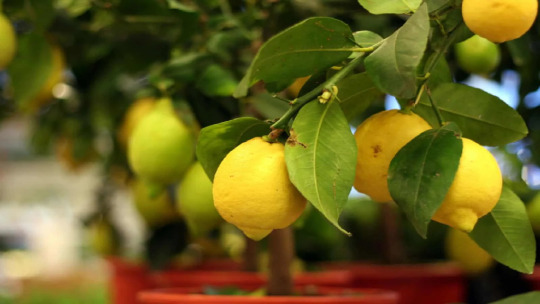
Lemon is a citrus fruit with a sour taste. India is the largest producer of lemons in the world. The scientific name of plant is citrus lemon. Citrus is native to Asia. A lemon tree is a small tree or dense shrubby plant. Citrus fruits are mostly found in tropical regions.
Varieties
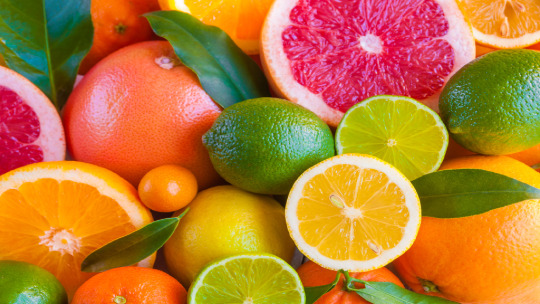
There are different varieties of lemon grown worldwide. Popular varieties such as Meyer, primofori, Verna, bearss lemons and baboon lemons.
Meyer lemon
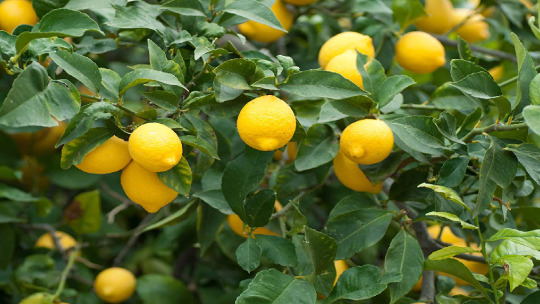
Meyer citrus fruits is a hybrid variety crossed between lemon and mandarin orange. This lemon tree is dwarf species with a quick fruit-producing variety. It has smooth golden skin and grows at a height of 6-10 feet.
Primofiori lemon
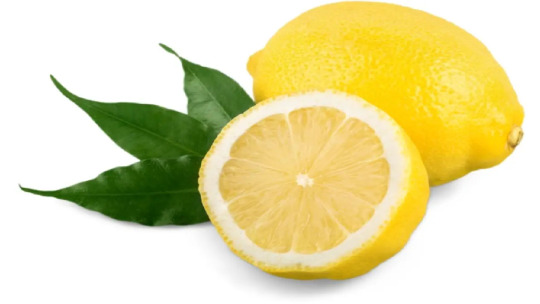
These citrus fruits have a soft peel with a good amount of juice. It bears a medium to small, yellow colour. Large and hardy lemon tree. Grows up to 19 feet. The plant gives citrus fruits for 20-30 years.
Verna lemon
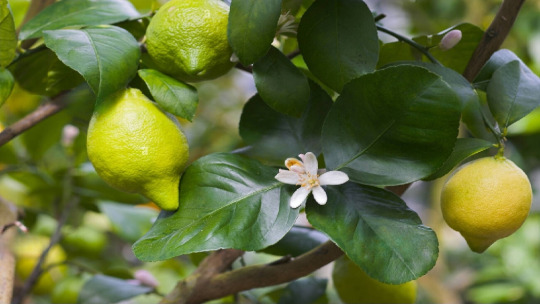
Verna citrus is almost related to the eureka variety. It contains fewer seeds and a high amount of juice. This lemon tree is a vigorous nature plant with good productivity. Verna is a self-compatible species.
Bearss lemon
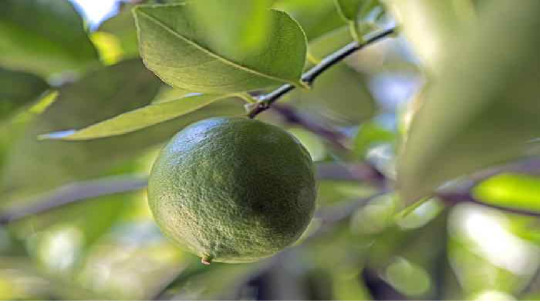
Bearss variety is one of the most popular varieties. Citrus plants have a thornless branch. It has a high quantity of juice content. Fruits are round to oval shape.
Baboon lemon
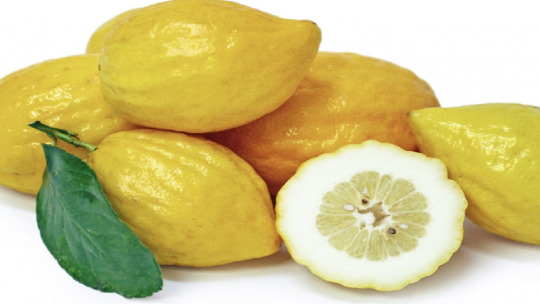
Baboon citrus has bright yellow skin, a slow-growing compact plant and a thick rind. Citrus fruits are knobby and highly acidic.
Soil
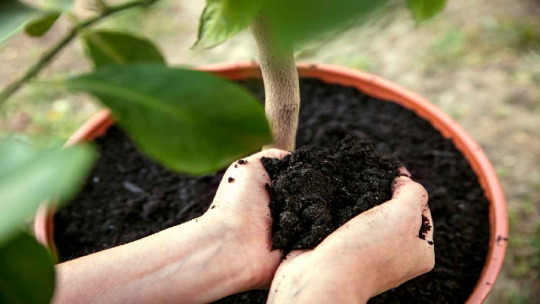
This plants prefers grow in all types of soil. A simple potting mix should include 40 per cent coco-peat moss with 20 per cent compost like decomposed cow dung or vermicompost.
Watering

The watering frequency of course depends on the zone. Water it deeply and thoroughly so that the entire root system is drenched with water and water comes out of the drainage holes. Overwatering can result in root rot and death of the plant.
Sunlight
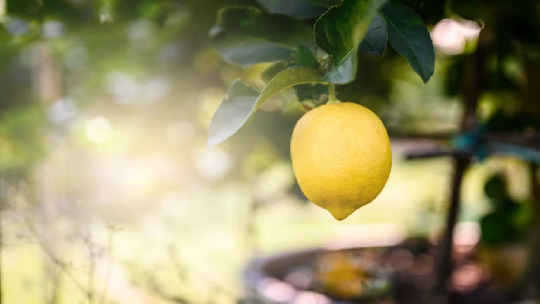
Growing citrus plants on the balcony or on the terrace, location is very important because these trees need full direct sunlight of at least 6 hours for the best result.
Fertilizer
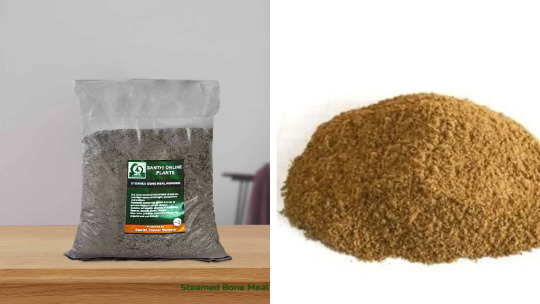
During the time of fruiting add one handful of steamed bone meal powder which is very inexpensive. Add banana peel fertilizer once in 15 days to supplement good potassium.
Pests and diseases

Improper care can cause pests like aphids, mealy bugs and whiteflies. Citrus canker is a major disease.
Control
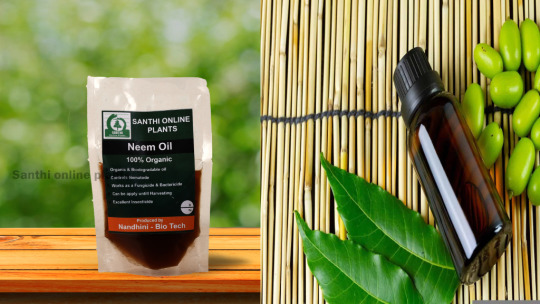
Best in prevention by spraying neem oil once in 15 days (5-10ml neem oil in one litre of water)
Repotting
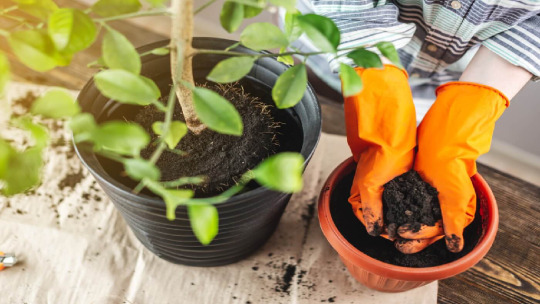
To maintain a healthy plant, citrus trees can be repotted once a year.
Pruning
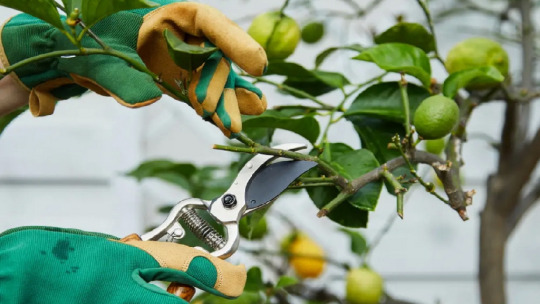
To prune damaged and dried leaves to promote vegetative growth. Trees pruned prior to blooming.
Benefits
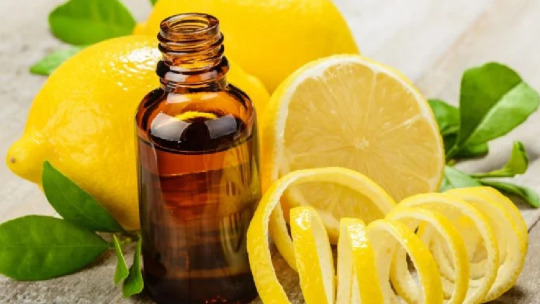
This plant helps in weight loss, and reduce the risk of heart, kidney stones and digestive issue.
This fruits are used in foods and cleaning products.
Helps clear skin and boost immunity.
Beneficial for throat infection.
It has a good source of vitamin C.
"Love the planet green to spend a happy life"
Lemon eco-friendly plant
Blog compiled by Santhionlineplants
#Fertilizer#fertilizer#Pests and diseases#pests and diseases in citrus#Improper care can cause pests like aphids#mealy bugs and whiteflies. Citrus canker is a major disease.#Control#neem oil#Best in prevention by spraying neem oil once in 15 days (5-10ml neem oil in one litre of water)#Repotting#repotting citrus plant#To maintain a healthy plant#citrus trees can be repotted once a year.#Pruning#pruning of lemon tree#Benefits#benefits for citrus fruits#This plant helps in weight loss#and reduce the risk of heart#kidney stones and digestive issue.#This fruits are used in foods and cleaning products.#Helps clear skin and boost immunity.#Beneficial for throat infection.#It has a good source of vitamin C.#Lemon eco-friendly plant#Blog compiled by Santhionlineplants
0 notes
Text
6 silent side effects of Vitamin D supplements and how to minimise them - Times of India
Vitamin D is essential for strong bones, immune health, and mood regulation. However, as more people turn to supplements to combat deficiencies, many are unaware that excessive or inappropriate use can lead to hidden side effects.WhileVitamin D toxicity is rare, long-term misuse or high doses may cause subtle but significant health concerns. Here are six silent side effects of Vitamin D…
#bone health#calcium absorption#digestive issues#hypercalcemia#kidney stones#mood changes Vitamin D#supplements and medications#Vitamin D recommendations#Vitamin D side effects#Vitamin D toxicity
0 notes
Video
youtube
ফুলকপি এড়িয়ে চলা উচিত যাদের, জেনেনিন আপনি আছেন নাকি সে তালিকায়...
#youtube#Cauliflower health risks#Thyroid health and cauliflower#Goitrogens in cauliflower#Digestive issues#Gas and bloating#Allergic reactions#Hypothyroidism#Cruciferous vegetables#Blood sugar control#Kidney stones risk#Cauliflower diet restrictions#Nutritional sensitivities#Low FODMAP diet#Cauliflower alternatives#Food intolerance#ফুলকপির পুষ্টিগুণ#থাইরয়েড সমস্যা#গয়ট্রোজেন (Goitrogens)#হজমের সমস্যা#গ্যাস ও ব্লোটিং#অ্যালার্জি প্রতিক্রিয়া#কিডনির সমস্যা#রক্ত শর্করা নিয়ন্ত্রণ#ফুলকপি এড়ানোর কারণ#ক্রুসিফেরাস সবজি#হাইপোথাইরয়েডিজম#খাদ্য সংবেদনশীলতা#ফুলকপির ক্ষতিকর প্রভাব#ফুলকপির বিকল্প
0 notes
Text
Long List Of Multi Systemic And Chronic Health Issues Caused By Excessive High Oxalate Food Intake
WHAT IS GOING ON IN THE US AS FAR AS HEALTH IS CONCERNED? I've looked at a lot of pictures from Woodstock…There were over 300,000 people and I couldn't find more than 3 overweight peopleWhereas today I guarantee 30% of the crowd would beIt is insane how much hotter & healthier everyone was 50 years ago pic.twitter.com/PduFhAXH6C— Carnivore Aurelius ©🥩 ☀️🦙 (@AlpacaAurelius) August 9, 2024 COULD…
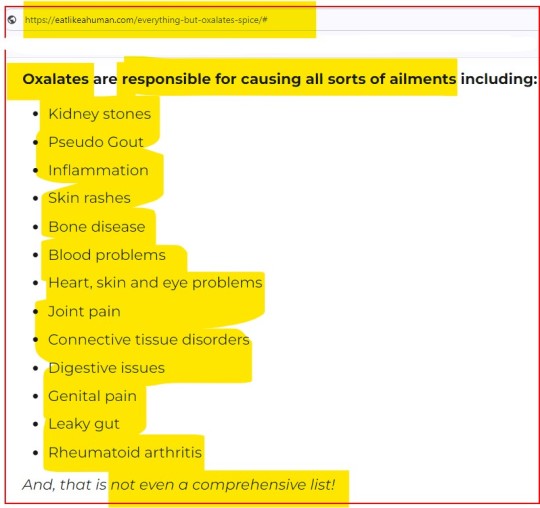
View On WordPress
#arthritis#bone disease#digestive issues#diseases#Healthcare#inflammation#joint pain#kidney stones#leaky gut#list#nutrient deficiency#nutrition#oxalates#oxalosis#skin rash
0 notes
Text
It took me nearly 15 years to get my endometriosis diagnosis and comprehensive treatment, but I recognize I’m super privileged in being able to access care where I live from one of the top doctors in endometriosis research(specifically endometriosis in adolescents, but his research spans all age groups). I want to share some of the things I learned, along with study sources he linked me to, so others can advocate to their providers for the care they need. So without further ado:
✨ What I Wish I Knew About Endometriosis 15 Years Ago ✨
No amount of pain is “normal”
Don’t get gaslit into thinking “everyone” who has periods goes through pain. Seek treatment - you deserve better.
Diagnosis/treatment is kinda a pain, even with a doc who takes you seriously
The general course of action for diagnosis/treatment will be attempt treatment through OTC painkillers (Tylenol, Midol, etc), attempt at least 1-2 forms of hormonal birth control(typically oral contraceptive/birth control pill or the ring/patch/shot), then decide with your doctor whether to pursue either further hormone treatments, such as GnRH(which suppress estrogen/can help stop progression of endo) or an IUD, and/or surgical intervention where they go in and find/remove the existing lesions.
Surgery for me took a couple hours, and I had an IUD placed during the operation(at recommendation of my doc). Full recovery was around 2 weeks. Its worth noting right now you can technically only be diagnosed through surgery.
You may have to mix-and-match to find the right solution.
Only 33% of people with endometriosis in a recent controlled study saw significant improvement by IUD alone, as compared to IUD with supplementary hormonal treatment(like oral birth control or hormone inhibitors). Source: https://www.sciencedirect.com/science/article/abs/pii/S1083318812002379
Some options may actually make it worse. Keep an eye on your symptoms.
Studies show that estrogen based treatments can potentially exacerbate endometriosis and promote endometrial growth, so treatments without estrogen or with specific types of estrogen are more recommended. Source: https://pmc.ncbi.nlm.nih.gov/articles/PMC5683134/
Its Got Hella Comorbidities
Fibromyalgia, scoliosis, arthritis, thyroid disease, migraines, chronic fatigue, and bowel disease(IBS, crohn’s, celiac, etc), and more are all potential associations/comorbitities. It’s also worth noting that having any of these in your family history may also put you at higher risk for endo. As my doc said - you’re not guaranteed to get all, or even any, of these, but they’re things to keep an eye out for. Sources:
IBS: https://pmc.ncbi.nlm.nih.gov/articles/PMC9357916/
IBD/Crohns: https://pubmed.ncbi.nlm.nih.gov/32629225/
Celiac: https://pubmed.ncbi.nlm.nih.gov/24992792/
Thyroid: https://pmc.ncbi.nlm.nih.gov/articles/PMC10234359/
Migraine: https://pubmed.ncbi.nlm.nih.gov/38436302/
Painful Bladder Syndrome: https://pmc.ncbi.nlm.nih.gov/articles/PMC3015716/
EDS: https://www.sciencedirect.com/science/article/abs/pii/S0002937824001637
Arthritis: https://pubmed.ncbi.nlm.nih.gov/35258592/
Scoliosis: https://pubmed.ncbi.nlm.nih.gov/9238674/
TMJ: https://pmc.ncbi.nlm.nih.gov/articles/PMC10144081/
Kidney Stones: https://pmc.ncbi.nlm.nih.gov/articles/PMC9108729/
POTS: https://pmc.ncbi.nlm.nih.gov/articles/PMC3413773/
Fibromyalgia: https://pubmed.ncbi.nlm.nih.gov/30682223/
Chronic Fatigue: https://pmc.ncbi.nlm.nih.gov/articles/PMC6537603/
Sjogren’s Syndrome: https://pubmed.ncbi.nlm.nih.gov/39083399/
Bonus Advice
No published studies exist showing any increase/decrease of symptoms between usage of different menstrual products. Do whatever makes you most comfortable!
For OTC pain management, Tylenol or Aleve may be your best bets over Advil, based on their anti-inflammatory nature.
He also recommended probiotics pretty heavily, since digestive issues(ie bad period poops) are super common. Any with >10Bn active cultures are good!
(Disclaimer: I am not a doctor, just someone that learned a lot and wants to share)
485 notes
·
View notes
Text
the effects of the gases used by the bigger bodied smiling critters
Bobby bear hug: rose helps with stress, seizers, aging, and diabetes. (Nurse?)
Hoppy hopscotch: peppermint helps with pain management, digestive issues, common cold, sinus infection, and headaches. (Child care?)
Kicken chicken: ylang ylang is good for anxiety, depression,mood enhancement, and cognitive function. (Councilor?)
Craftycorn: jasmine is useful for immune support, blood circulation, optimizing hormone levels and relieving stress. (Nurse?)
Picky piggy: citrus is useful for heart health, help maintain cell health in brain tissue, prevents heart disease, kidney stones, brain dysfunction, and emotional regulation. (Food?)
Bubba bubbaphant: lemon grass helps with menstrual issues, improve digestion, nausea, headaches, muscle cramps, spasms, rheumatism (joint pain), high cholesterol, anti-inflammatory, bloating, and boosting red blood cell counts. (Child care for kids with chronic issues?)
Dogday: vanilla as said before helps relax and calm people by reducing anxiety and calms the nerves but also helps with fevers, spasms,blood clotting, although from what I found large amounts can lead to sleep issues but I don't know how accurate that is so take that with a grain of salt. (Kid care?)
Catnap: poppy flower as known does cause a fatigue affect but also has traces of opioids, along with that it also analgesia (inability to feel pain.), euphoria (the laughter), respiratory depression (breath shallow leading to build up of carbon dioxide in the blood.), decreased gastrointestinal mobility (digestive problems resulted when nerves or muscles in the gut do not work in a coordinated way.), and physical & psychological dependency.
eat your heart out au makers!
#poppy playtime chapter 3#poppy playtime#Researched au ideas#dogday#catnap#hoppy hopscotch#craftycorn#picky piggy#kickinchicken#bubba bubbaphant#bobby bearhug
87 notes
·
View notes
Text
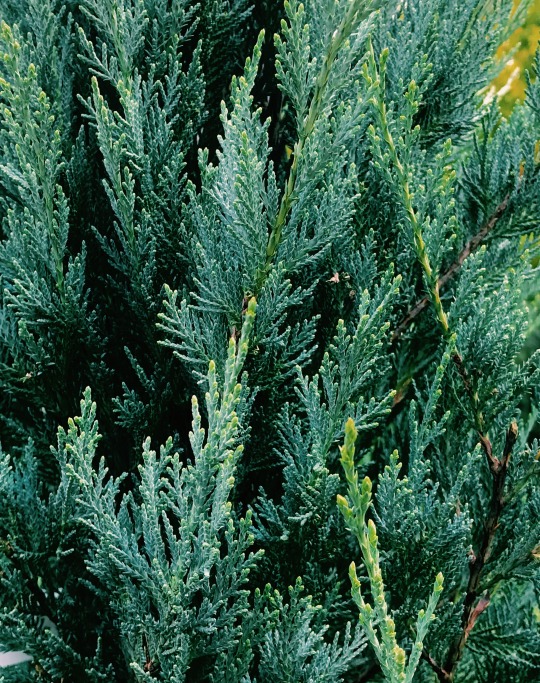
Eastern Red Cedar (Essential Herbs for Witches)
*Notes from the Hekate ritual kits that were released October 23'.
Latin name: Juniperus virginiana
Planet: Sun, Saturn
Element: Fire
Parts used: foliage, wood, essential oil
Astrological Association: Leo
Energy: Masculine
Magical properties: Longevity, protection, preservation, strength, wisdom, perseverance, renewal, transformation, balance, connection to the divine through nature, return of stolen goods, defense.
Healing properties: Fever, cough, skin conditions, respiratory issues
Eastern Red Cedar is not actually a true cedar, it’s a juniper, as its latin name, Juniperus virginiana, indicates. Naturalized in Europe, Asia, and North America, Eastern Red Cedar is present in all temperate regions of the northern hemisphere and stretches into parts of the southern hemisphere. This hardy tree has deep roots and tolerates poor rocky soil, salt, heat, and wind, and is drought tolerant.
Medicinally juniper has been used in bathing, sometimes as a scourge, to alleviate rheumatoid arthritis and to relieve depression symptoms and exhaustion. It’s also been used to heal open wounds. Juniper is warming and pungent and affects the liver and kidneys. Its bitter action stimulates the gallbladder and liver and it aids in digestion. Juniper is also used for respiratory issues, urinary tract infections, and skin ailments like psoriasis and eczema. The warming effect of juniper makes it helpful in breaking fevers. Eastern red cedar is an abortifacient and should not be used by pregnant women.
Juniper berries have been used to flavor food, beer, and notably gin, and in Ireland the unripe berries are tinctured with whiskey and used as a general health tonic.
As for juniper’s use in folklore and witchcraft, around the Mediterranean and Aegean seas, it was planted to protect a home from evil spirits and malicious men. It was sometimes built into a new house as a structural beam or to fill cracks between stone to drive away illness and evil spirits. Branches were hung above doors to repel witches.
Because it is an evergreen, it’s also used in fertility rites and the berries are sometimes used as an aphrodisiac.
Shamans in Siberia burned and inhaled the smoke of juniper to induce trance, and because of its high thujone contain, it can indeed induce altered states. Thujone does build in the liver over time so care should be taken to limit smoke inhalation to occasional use.
Burning juniper as a smudge was common in Native American rituals for purification and to cleanse sacred ritual space. Cherokee natives believed that the wood of this cedar held the spirits of their ancestors. In other native ritual practices, it was believed that messages were sent to the Creator when it was burnt ceremonially.
In Scottish folk magic, juniper is used to ‘sain’ livestock and homes during Beltaine and Samhain. Saining is done by lighting bonfires and driving cattle between them. These fires would be lit from sacred Neid fires and extinguished home fires would be relit with this fire. People also hopped over these fires to rid themselves of negative spirits. Juniper (lubhar beinne) was used, and to a lesser extent, mountain ash or rowan (caorran). The cattle byre was sained, and the lintel over the byre was anointed with wine or human urine. Homes were also sained with burning juniper and “in such quantities to fill the whole house with smoke.” Juniper would have also hung at windows to ward off witches and evil spirits and to rid the house of pests and diseases.
According to Scottish folklore, juniper needed to be harvested in a particular way, like all magical plants. It was pulled by the roots, taking 4 branches between 5 fingers while an incantation was repeated. Today we should probably refrain from yanking bushes from the ground and taking a branch or some berries after asking permission should suffice. The branches can be dried and burned or the berries can be burned on a charcoal disc, or dip the branch into sea salted water and sprinkle a bit on yourself and your magical working space.
While we generally think of juniper as a plant of the Sun, it does have older Saturnian associations perhaps because they are very long lived, but maybe also because of their often gnarled wood and spiky foliage, giving them a dark, ominous aspect. Like both yew and cypress trees, Easter red cedar is common in older cemeteries in the southern united states. This may be because its evergreen leaves have come to symbolize ‘eternal life’, but through the ancient Greeks, we have an association with juniper as a plant of Hekate, perhaps because she led the procession of the dead. Through Hekate, it is also associated with Medea, a Hekatean priestess.
I choose to substitute Eastern red cedar for the yews, cypress, and cedar we traditionally see aligned with Hekate because ERC happens to grow in abundance in my bioregion and has a long history of use in sacred rites across the world. Eastern red cedar is a plant of protection and is excellent for banishing, inspiring courage and strength, purification and release.
21 notes
·
View notes
Text
I've only got like, a little over four hours before I have to feed Banjo and then let him out and sit with him until whenever it is my mom gets home. Which seems like a lot, but also for me in particular, it isn't really. I've got a real "sitting around with my thumb metaphorically up my ass" problem when it comes to trying to decide what to do with my time, until I inevitably wind up having no time at all.
Also, I'm probably gonna have to wind up scooping his litter box at some point this week, bc my mom won't be able to go upstairs. I'm kind of wondering how she's even gonna get in the house, since there's no point of entry that doesn't have at least a couple of steps. I suppose the moderately less egregious way is through the front, which is definitely not the usual way.
This whole scenario is making me nervous, anyways. I also wish it could've been done another way, but apparently the only other way contained too much risk. To clarify, it's a kidney stone issue; it's too big to pass normally, and apparently is also potentially too big to break it up using sound, which I think is the other option she mentioned? Point being, if it breaks up but a piece winds up too big it could get stuck, which would be an even worse problem.
So yeah she's gonna have surgery to like, I think have a splint put in or smth? dunno how it works. Also dunno how this is going to coincide with my appointment next Monday for a digestive health specialist. It's fucked all the way down, I reckon.
#I wish I was rich or smth so that I could just pay other people to do things#and I didn't have to stress about managing my excess of jobless leisure time with trying to be productive in ways that are profitable#bc doing that is killing my soul and it feels like I can't even TRY to do things anymore if there's no monetary gain to be had from it#bc I have to do Something since I don't have and cannot work a normal job#hell the only conceivable way for me to get hired is through a method that costs money and might not even pay dividends#since nobody wants to hire somebody like that these days lmao; standards are WAY too fuckin high#also I hate being told what to do usually; and despise authority if I think it's stupid. which I do majority of the time.#makes life kinda difficult ig. I need to scrape at least enough together to start playing the lottery ig bc at this point-#it's our only hope of escaping this hell
2 notes
·
View notes
Text
If I could have functional hands/body with no pain, no migraines, no IBS/digestion issues, no walking with a cane, no wrist sleeves, no kidney stones, no acute anxiety/panic attacks, no chronic insomnia that's too bad for my birthday tomorrow & next few days i'd be eternally grateful
3 notes
·
View notes
Text
🍃🕊🍃 Fasting 🍃🕊🍃
A Body/Mind/Spirit Healing.
Allah the Almighty says in the Quran:
“And seek (Allah’s) assistance with Patience and Prayer; and truly it is extremely heavy and hard except for those with full submission. Who are certain that they are going to meet their Lord and that unto Him they are going to return.”
🍃🕊🍃 Holy Quran 🍃🕊🍃
(2:45-46)
Numerous Prophetic traditions interpreted the ‘Patience’ in the Ayah as ‘fasting,’ which means fasting is the very first element of the spiritual journey to God. All the prophets in their spiritual journey have been seeking assistance with fasting.
1. Prophet Moses
“I had gone up the mountain to receive the stone tablets, the tablets of the covenant which He had made with you; and I remained on the mountain 40 days and 40 nights without eating bread or drinking water. Then the Lord gave me the two stone tablets..”1
2. Prophet Jesus
In his spiritual journey was aided by fasting against the devil: “Then Jesus was led by the Spirit into the desert to be tempted by the devil, and after fasting 40 days and 40 nights he was hungry…”2
It also appears from chapter 5 of the Gospel of Luke that the disciples would frequently fast and pray.
3. Prophet of Islam
The entire Qur’an was revealed to the Prophet of Islam in the holiest night of the holiest month of Ramadhan; the month of fasting.
“The month of Ramadhan in which the Qur’an is revealed.” 2:185
“Indeed, We revealed it (the entire Qur’an) in the night of Measure.” 97:1
According to many Hadiths, the Torah was revealed to Moses on the 6th of Ramadhan, Injil was revealed to Jesus on the 12th of Ramadhan, Psalms of David revealed to him on the 18th of Ramadhan and the Holy Qur’an in the Night of Qadr (most probably 23rd of Ramadhan).3
In other words, all revelations occurred during the fasting month of Ramadhan. Could it be any reason more important than the spirituality of fasting?
🍃 Benefits of Fasting
1) Physical Healing
It is quoted from the Prophet of Islam to have said: “Fast, you’ll be healthy”. An Egyptian pyramid inscription in 3800B.C also reads: “Humans live on one-quarter of what they eat; on the three-quarters live their doctor!”
The three fathers of Western Medicine; (Hippocrates, Galen & Paracelsus) prescribed fasting as the greatest remedy and the physician within. Life Magazine in its September 1996 issue considered fasting: the healing revolution.There are more than 500 medical journal articles available on therapeutic fasting on the internet.
The outstanding physicians named fasting as being; the medicine for the 21st century. They believe the human body is designed to heal itself, if only given the opportunity. Dr. Otto Buchinger; Germany’s great fasting therapist after more than 100,000 fasting cures says: “Fasting is, without doubt, the most effective biological method of treatment.. it is the operation without surgery… it is a cure involving exudation, redirection, loosening up and purified relaxation.”
He furthers therapeutically; fasting cures many of our modern illnesses, including the following: allergies, cardiovascular disease, chronic diseases of the digestive system, degenerative and painfully inflammatory illnesses of the joints, myriad disturbances in one’s eating behavior, glaucoma, initial malfunction of the kidneys, tension and migraine headaches, as well as skin diseases. Preventively, it’s designed to cleanse, and to regenerate, rejuvenate and restore a person’s sense of well-being, in body, mind and soul. As Doctor Buchinger would conclude: "When the body fasts, the soul is hungry; when the body becomes lighter, the soul also craves relief."
Dr. Joel Fuhrman in Fasting and Eating for Health notes: “Fasting has been repeatedly observed to alleviate neuroses, anxiety and depression.”4
Fasting marvelously decomposes and burns all the cells and tissue that are aged, damaged, diseased, weakened or dead, a process called in medicine autolyze or self-digest or detoxification.
Michael Rosenbaum, M.D., Director of the California-based Orthomolecular Health Medicine Medical Society, notes on the significance of fasting as a detoxification program: "The hidden cause of many chronic pains, diseases and illnesses may be invisible toxins, chemicals, heavy metals and parasites that invade our bodies . . .Chances are slim that your doctor will tell you that toxins may be the root cause of your health problems. He or she may not even know about how these toxins are affecting your body . . . As your cells go, so goes your health. If your cells have been invaded by toxins and dangerous chemicals, your resistance to disease is diminished. Clean and nourish your cells, and you’re on the road to better health."
When by fasting you stop the input of nutrition for a while, then a flurry of cleansing starts up, the rugs are lifted and the dirty dishes are brought out of the cabinet where they were stashed. Cleansing begins in earnest. U.S Congress approved $20 million in 1998 for funding of the National Institutes of Health’s fledging office of Alternative Medicine. This went up to $50 million in 1999 and to $68.7 million in 2000 which shows the growing interest of the Congress.
🍃 Healing Crises
Those fasting sometimes experience side effects during the first days. The side effects may vary from fatigue, malaise, headaches, vomiting to the symptoms of cold and flu. These reactions are sometimes called in medicine healing crises, which are temporary and caused due to elimination and cleansing of toxins. A fasting person should be patient and let this period pass.
I should however stress that there are circumstances, which exempt people from fasting as mentioned in detail in the books of Islamic Jurisprudence, e.g. a diabetic who not only needs to take regular medication but their diet is very strict through out the day, hence should not fast, or else not only his/her fasting is void, it is even considered sinful. Similarly, a pregnant woman is exempt from fasting if it is going to either harm her or the baby. In general, the rule is that fasting is forbidden, if the person is confident that fasting will be physically harmful to them.
2) Social Healing
“Truly! Allah wrongs not mankind in aught; but mankind wrong themselves.”10:44
A man wrote a letter to Imam Askari (a.s) asking him: “For what reason did Allah make fasting compulsory?”
The Imam (a.s) wrote in reply: “God has made fasting compulsory so that the rich shall find the pain of hunger so they have a mercy upon the poor.”5
Starvation and its related diseases causes one person per second to die on this planet, 75% of them being infants and children under the age of 5.
Typically, stories involving deaths in Africa receive lesser coverage than those, which occur elsewhere. Nonetheless, let us read the following news.
Exodus newsmagazine in its July 22, 2001 issue reported: Starvation In Ethiopia, Help Slowly Arriving, Death Toll Cannot Be Determined By Howard A. Gutman
“A massive tragedy is unfolding in Ethiopia as thousands of starving people are expected to die. Without help, many expect the death toll to be in the millions. Yet little is being done in the U.S.”
According to the same newsmagazine in the last famine, there were approximately one million deaths.
Now compare the above news with the following:
‘More than half of U.S adults (20+) are overweight. Nearly one-quarter of U.S adults are obese.’ And the figures are drastically increasing. This is despite all weight-loss programs in these countries.
According to Wolf & Colditz in ‘Current estimates of the Economic Cost of Obesity in the US 1998’: “Economic cost in the U.S related to the overweight in 1995 was the total of $99.2 billion. And according to the same source Americans spend $33 billion annually on weight-loss products and services. This includes low calorie foods, artificially sweetened products; such as sodas and memberships to commercial weight-loss centres.
And if you want to know whether you are among those over-weight people in a time when starvation causes one person per second to die, here is your scale.
The biggest problem facing the world today is not people dying in the streets of Mumbai, Zimbabwe or Ethiopia; it is rather the lack of a sense of caring for those disadvantaged people whose rights have been usurped by others. Fasting provides the opportunity for the faster to feel and find for himself or herself the pain and agony that a poor person is going through. A fasting person can also keep his or her money, usually spent on lunch, away to feed a group of poor people with. Thus, Zakatul-fitreh is compulsory and is regarded as the compilation of fasting.
Nonetheless, some fasters sleep during the day as much as they can to avoid the so-called pains of fasting, and upon sunset enjoy a feast greedily and hence lose the entire medical, social and spiritual benefits of it.
Reduction of crimes during the month of Ramadhan is another social benefit of fasting.
3) Spiritual Healing
“O you who believe! Fasting is prescribed to you as it was prescribed to those before you that you may gain self-restraint.” 2:183
Despite all the abovementioned benefits of fasting, we believe the main benefits of religious fasting are its spiritual rejuvenation and healing.
Fasting is prevention from certain things most of which are not only normally permissible but also even quite essential in our lives. By fasting we avoid food and drink which are the main nutritional sources for our body. This challenge against permissible and normally useful inputs is to give us the strength to avoid taking things that are harmful, including toxins, for our body and soul. In other words, I am able to fast against Halal food and soft drink over a month, should I not be able, by far, to fast against intoxicants and Haram foods over a year?
This is in spite of the fact that the first are my essential needs and the latter are not. A religious fasting is not just a physical diet program. When we fast from food we are expected to also fast from all harmful and forbidden actions and intentions. I may call this process a spiritual detoxification.
Fasting, if made with the intention of closeness to God, ascends one from the kingdom of animals to the realm of angels. You therefore, close your physical mouth to open your spiritual mouth. You fast your body to let your spirit feast with mysterious morsels. When you fast, you empty your stomach from the bread to fill it up with Unique Glorious Pearls.
🍃 Fasting is the Heart of Servitude
Fasting is prevention and prevention is separation and detachment and detachment is the heart and the reality of servitude to God.
🍃 Other benefits of Fasting
Fasting has many other benefits such as punctuality, patience, contentment and many others that unless one fasts cannot really realize them.
🍃 Degrees of Fasting
A Natural Diet
people at this level fast solely for medical purposes. This is certainly not a religious fasting.
Religious Fasting
Religious fasting may be observed in three different levels:
1. Fasting of Al-Shari’ah (Jurisprudential Fasting)
Fasting for many Muslims is mainly to refrain from what they must jurisprudentially refrain from such as eating, drinking, sexual intercourse etc. Although this is the lowest and the least level of religious fasting, once it is offered for the sake of God, the faster is religiously considered fasting. To give you an idea of how low the level of this stage is, let me share some examples with you. A Muslim girl may fast without practicing her Islamic dress code at school and her fasting is valid on this level. A Muslim may observe fasting and yet listens to rock and roll and his/her fasting is jurisprudentially valid.
No doubt, the purpose of fasting is not just to avoid food and drink and hence this is the very lowest level of fasting for the very beginners to start their journey towards perfection and promotion. Thus, it is quoted from the Prophet of Islam (S) that: “Many people gain nothing from their fasting save hunger and thirst.”6
The Shari’ah fasting is prescribed for beginners as a form of training to help them become acquainted to waking up at dawn with the excuse of eating and drinking lest they feel hungry and thirsty during the day, in order for them to experience the pleasant breeze at dawn, to be awake at a time when the divine cups of spirituality are served.
The least he is expected, therefore, to gain by the end of Ramadhan is to have gotten used to offering his/her morning prayers on time.
A faster at this level is expected to think why he or she is told to refrain from eating and drinking which are essential nutrition for his or her body? Could it be that by refraining from consuming the essentials I learn to more easily refrain from unnecessary and even harmful inputs to my body and soul? Once he or she successfully finishes a month of Shari’ah fasting by refraining from soft drinks and Halal food and even finds him/herself healthier than before, the faster should find it easier by far to avoid intoxicants or Haram foods which are even harmful for his or her body and does not really require.
Once the faster is aware of such facts, they will be ready to enter the higher level of fasting, which I have called the fasting of Al-Tariqat.
2. Fasting of Al-Tariqat (Ethical Fasting)
This is the fasting of noble people. People in this degree not only fast from what is jurisprudentially mentioned, but they also observe an ethical fasting too. Such noble fasters let their eyes, ears and all other body parts fast against whatever which is regarded in religion as Haram. Gossiping is always Haram, but for them it is more Haram during the fasting period. Non-Islamic dress is always Haram but for them is an essence during Ramadhan. This is called the fasting of Tariqat. Imam As-Sadiq (a.s) is quoted from his ancestors from the Prophet of Islam (S):
“When you fast, let your ears, your eyes, your hair, your skin and all your body fast too. Do not let your fasting day be the same as non-fasting ones.”7
It is quoted from Prophet Jesus to have said: “Renew yourselves and fast, for I tell you truly, except you fast, you shall never be freed from the power of Satan, and from all disease that come from Satan.”8
A lady whilst fasting was swearing at her maid in the presence of the Prophet of Islam (S). The Prophet (S) offered her some food to eat. She said: “I’m fasting O Messenger of God!” the Prophet replied: “How are you fasting and you swear at your maid. Fasting is not only from food and drink. Indeed God made it that way so that food and drink are used as a veil against other sins, verbal or action. How few are fasting and how many are just hungry.”9
3. Fasting of Al-Haqiqat (Mystical Fasting)
This is the highest level of fasting, which belongs solely to the special nobles. Fasters- who are not many- at this degree believe you are what you think and hence they fast from all other than God including, Paradise. They make sure that during the month of Ramadhan they detach themselves from whatever which is other than God. This state of absolute detachment (Al-Enqeta’) is the reality of servitude to God. This is why I named this stage the fasting of Al-Haqiqat (Reality).
They believe as physical fasting burns the fat and removes the toxins, such mental fasting also does the same to the mind. The reward of fasting in this degree is none other than God Himself, the Almighty. This is the meaning of the Holy Hadith that Allah the Almighty says: “I will reward all rituals of mankind from ten times to seven hundred times save Patience, for it is for Me and I am its reward, and Patience is fasting.”10
A faster at this stage, since he or she is fasting from other than God, deserves to be His guest in His month. This status is called in Islamic mysticism Assimilation in God, (Al-Fana’ Fil-Lah) which is the ultimate purpose of servitude to God. To this end, Muslim mystics consider fasting even greater than prayers, in that, the devotee during his prayers needs to engage his organs, which in a sense means engagement within the self, whereas fasting is equal to refraining and detachment and requires no engagement. This is the stage where one can gain the Visit of God as described in the Ayah, in the beginning of this article, as the ultimate purpose of servitude to God.
🍃🕊🍃 al-Islam.org 🍃🕊🍃
.

2 notes
·
View notes
Text
ugh the beginning of this next month is going to be very, very tight. because I had the audacity to 1) get a kidney stone that demanded physical removal as opposed to lithotripsy and 2) catch Covid from a friend's kids, I used up all of my sick time/PTO (because of course this is America and they're the same thing), and employee health won't clear me to go back into work today since I've had digestive issues within the past 24 hours
which means ... yay, day 2 of no pay!
2 notes
·
View notes
Text
Most people assumed the fabrics of reality and were suddenly in a hurry to engraciate themselves.
But when you specified ‘Physical fabric, not the state of perception and everything in it.’ People lost interest, and in a few cases, actually started bullying you for it.
You let it happen like you did before your powers were granted to you.
But now that all of your peers had received their abilities, the harassment that was tolerable before, was starting to feel like torture.
You may not be able to bend our understanding of the world to your whims, but you can still absolutely change the rules of life.
You start by learning anatomy, by figuring out what molecules feel like, you start being able to tell what your surroundings are based on which molecules are where, that in turn tells you who is where.
At first you wanted to be able to create copies of your classmates to repeatedly fake their deaths, since they wouldn’t be alive copies. Can’t make a soul out of physical material after all. The idea was that they’d feel targeted and freak out at all of the ways they’re lined out to die, psychological torture and all that.
But to get the materials to make it happen it would cost far too much energy, it would take a week to make just 1 copy and half of it would be rotten before it’s finished..
So you’ve taken to turning their food into stone once they’ve ingested it.
The first bully died in an hour, the points were too sharp and broke the lining of the stomach, causing their blood to be exposed to acid and the acid to their internal organs. Not a pretty sight.
The second bully you took things slow with, you’d turn it into stone slowly, in different parts of the body to see how much you could get away with blocking before it becomes an issue. The large intestine and the stomach were the most resilient, as long as it wasn’t spiky.. The bully only died because you lost focus and accidentally turned the kidneys to stone, and you couldn’t figure out how to undo it.
The last bully moved schools since his friends were dead and his parents, who totally knew of his shenanigans, didn’t want him to be next. So of course you let him have a week while you figured out astral projection and followed his ass to wherever he went.
The others you kept from digesting by turning it to stone, but what if this time, you kept them from digesting by taking away the food?
You settled on that, and it was disappointing, it just looked like a tapeworm.
It took a week and a few pathetic hours, during which you visited when the room was empty and told him to remember the cafeteria food, and described the lunches he’d buy with your lunch money in excruciating detail. His stomach growled so loud you couldn’t help but laugh.
And then he was dead.
But you still felt slighted.
Killing them brought you satisfaction, but now that they’re gone you feel as empty as during their worst days.
No one knows that you did it, no one treats you any differently.
Maybe that’s it, maybe you just need another target, one to keep alive.
And after all, people who stood by are just as bad right?
It’d be justice to punish them for not coming to help you right?
You’re in the right to hurt someone for not doing what you felt they should, right?
You were shamed for having a weak power called Fabric Manipulation. However it didn’t exactly specify which fabrics you can manipulate.
#that last part was personal#writers#writers on tumblr#writing prompts#writeblr#writing inspiration#writing#writing prompt#fantasy#superpowers
7K notes
·
View notes
Text
Berberis Vulgaris uses in Hind — Expert Homeopathy
At Expert Homeopathy, we explain the uses Berberis vulgaris in Hindi to help you understand how this powerful homeopathic remedy can support your health. Berberis vulgaris is mainly used for kidney stones, urinary problems, and liver-related issues. It is also helpful in relieving joint pain and improving digestion. If you're looking for natural and effective treatment, Berberis vulgaris is a trusted remedy in homeopathy.
#best homeopathic doctor online consultation#best homeopathy doctor for piles#homeopathy doctor for piles#homeopathy treatment for piles#best homeopathy doctor in india#best homeopathy medicine for piles#piles homeopathy doctor in pune#best lady homeopathy doctor in india#homeopathy medicine for piles and fissure#online homeopathy doctor consultation
0 notes
Text
Best Homeopathy Doctor Clinic In Hyderabad
Dr. Care Homeo Clinic – The Best Homeopathy Clinic in Hyderabad for Holistic Healing
Dr. Care Homeo Clinic is widely recognized as the Best Homeopathy Clinic in Hyderabad, offering advanced, holistic, and result-driven homeopathic treatments for a wide spectrum of health conditions. We are committed to delivering high-quality, personalized care that focuses on treating the root cause of ailments, not just the symptoms.
As the Best Homeo Care Clinic in Hyderabad, we provide tailored treatment plans for individuals of all ages, addressing both chronic and acute conditions such as skin disorders (psoriasis, eczema, acne), respiratory issues (asthma, sinusitis, bronchitis), joint pains (arthritis, spondylitis), thyroid imbalances, allergies, hormonal disturbances, digestive problems, migraines, and stress-related concerns.
What truly sets Dr. Care apart is our team of highly skilled and compassionate professionals, including the Best Homeopathy Doctor in Hyderabad, who bring years of clinical expertise and a deep understanding of classical and modern homeopathic practices. Each patient receives one-on-one attention and a customized treatment plan designed using natural, safe, and side-effect-free remedies.
We believe in a holistic approach to health—empowering the body to heal itself through gentle stimulation of the immune system. Our clinic is equipped with modern infrastructure, a warm patient-centric environment, and a commitment to long-lasting results.
Whether you're seeking treatment for a specific health issue or looking to enhance your overall well-being, Dr. Care Homeo Clinic stands as your trusted partner in health and healing. Experience why so many patients consider us the Best Homeopathy Clinic in Hyderabad and rely on our care for long-term wellness.
1 note
·
View note
Text
Is Your Stomach Pain Serious? Signs You Shouldn’t Ignore
Almost everyone has dealt with stomach pain at some point. It might come after a heavy meal, a stressful day, or an episode of indigestion. But not every stomach ache is harmless. Some are the body’s way of signalling that something more serious is going on beneath the surface.
So how do you know when it’s time to seek help? And where should you go if you need expert care? Let’s break it down, especially for those searching for a reliable gastroenterology hospital.
Understanding What Causes Stomach Pain
Stomach pain—or abdominal discomfort—can range from mild to severe, and the causes are just as varied. Some are temporary and easy to treat, while others require in-depth investigation and specialised care. Here are a few common culprits:
Indigestion or bloating: Often caused by overeating, eating too quickly, or consuming spicy or oily foods.
Constipation: Lack of fibre, low water intake, or sedentary lifestyle can cause painful bowel movements.
Acidity or GERD: A burning sensation in your stomach or chest that worsens after eating.
Stomach infections: Caused by bacteria or viruses, often leading to diarrhoea, vomiting, and cramps.
Appendicitis: Sharp pain on the lower right side of the abdomen. Needs immediate attention.
Gallstones or kidney stones: Sharp, cramping pain that can radiate to the back or side.
Irritable Bowel Syndrome (IBS): Chronic condition marked by abdominal pain, bloating, and irregular bowel movements.
Liver or pancreatic disorders: These can cause discomfort in the upper abdomen along with other systemic symptoms.
Knowing the root cause of your discomfort is the first step to proper treatment. And that's where consulting a gastroenterology hospital makes all the difference.
When to Worry: Red Flags You Shouldn’t Ignore
Mild stomach pain that goes away on its own isn’t usually a cause for concern. But some warning signs require immediate medical evaluation:
Severe or sudden pain that disrupts your day-to-day life
Pain accompanied by fever, which could signal an infection
Persistent vomiting or nausea that doesn’t resolve
Blood in stool or vomit, indicating internal bleeding
Unexplained weight loss
Yellowing of the skin or eyes (jaundice), possibly linked to liver issues
Swelling, tenderness, or a hard abdomen
Pain that worsens after meals or radiates to the chest or back
If you or a loved one experiences any of these, don’t wait it out. Head to a trusted gastroenterology hospital where experienced specialists can run the necessary tests and provide expert guidance.
How a Gastroenterologist Can Help
A gastroenterologist is a doctor who specialises in diseases of the digestive system—this includes the stomach, liver, intestines, pancreas, and more. Unlike general physicians, they use advanced tools like endoscopy, colonoscopy, and liver function tests to pinpoint the exact cause of your pain.
If you're dealing with chronic or recurring abdominal discomfort, getting a proper diagnosis is crucial. The earlier a problem is detected, the better your chances for a successful recovery.
What to Expect During Your Visit
When you visit a leading gastroenterology hospital in Gujarat, here’s what you can typically expect:
Detailed history-taking: Your doctor will ask about the pain’s duration, frequency, and other symptoms.
Physical examination: They may check for tenderness, bloating, or abnormal sounds.
Diagnostic tests: Blood tests, ultrasound, CT scans, or endoscopy may be recommended.
Personalised treatment plan: Based on the diagnosis, the doctor will suggest medications, dietary changes, or procedures if needed.
The goal is to not just relieve the symptoms but to treat the root cause.
Why Timely Treatment Matters
Ignoring recurring stomach issues can lead to complications. For example:
Untreated acidity can turn into chronic GERD.
Ignoring constipation could result in haemorrhoids.
Infections, if not diagnosed, could spread to other parts of the digestive tract.
Delayed treatment of appendicitis can lead to a ruptured appendix, which is a medical emergency.
That’s why consulting an expert at a recognised gastroenterology hospital in Gujarat is essential—not just for relief, but for your long-term health.
Lifestyle Tips to Prevent Digestive Issues
While medical treatment is crucial for serious cases, a few everyday practices can help keep your digestive system in shape:
Eat smaller, balanced meals
Avoid oily, processed, and spicy foods
Drink plenty of water
Incorporate fibre-rich foods like fruits, vegetables, and whole grains
Exercise regularly
Manage stress through yoga or meditation
Limit alcohol and avoid smoking
Simple habits can make a big difference in how your digestive system functions.
Conclusion
Stomach pain shouldn’t be ignored, especially when it's persistent or paired with other troubling symptoms. Knowing when to seek help and choosing the right medical care can make all the difference.
If you’re searching for a gastroenterology hospital in Gujarat, make sure to choose one that combines medical expertise with compassionate care. Hospitals like Parul Sevashram Hospital in Vadodara are equipped with state-of-the-art diagnostic tools, skilled gastroenterologists, and a patient-first approach—offering you the care and clarity you deserve.
Don’t let stomach pain disrupt your life. Take the step toward better digestive health today.
0 notes
Text
A Complete Guide on How to Keep Kidneys Healthy

Let’s be honest: most of us don’t think about our kidneys until something goes wrong. We focus on heart health, gut health, or even skin care, but when was the last time you considered what your kidneys need? These bean-shaped organs work 24/7 to filter out waste, balance minerals and regulate blood pressure. Yet, we rarely show them any love until trouble knocks at the door.
Wondering how to make your kidneys healthy and avoid renal diseases, stones or other complications? It’s time to take action now! Keeping your kidneys healthy isn’t complicated, and with a few simple lifestyle adjustments, you can provide them with the care they deserve. Ready for it? Let’s dive in!
#1 Stay Hydrated
Water is your kidney’s best friend, as it helps you flush out toxins and keeps everything running smoothly. Drink enough fluids, but in case you're wondering how much you should drink, the standard recommendation is 8 glasses a day. However, please note that your needs may vary depending on your activity level and climate. A good sign that you are drinking enough fluids is that your urine should be a light yellow color; if it’s trending towards a darker yellow, it’s time to grab that water bottle.
#2 Eat a Kidney-Friendly Diet
What you eat has a direct impact on your kidneys. So, load up on:
Leafy greens because they are low in potassium and full of nutrients.
Berries are packed with antioxidants.
Apples and pears are great fibre sources that support digestion.
Fish, which is a healthy source of protein and omega-3s.
Also, try to cut down on:
Excess salt with high sodium levelscan increase blood pressure and strain the kidneys.
Processed foods,because many of them are packed with phosphorous, which can be harmful to weakened kidneys.
Too much protein. While protein is essential, overloading on red meat can make your kidneys work harder.
#3 Keep Blood Pressure and Blood Sugar in Check
Your kidneys and your heart are a team. In fact, researchers say that high blood pressure and diabetes are the top causes of kidney disease. If your blood pressure is above 120/80 or your blood sugar levels are frequently high, you need to take action:
Exercise regularly (even a 30-minute walk helps!)
Reduce sugar and processed carbs
Manage stress with meditation or deep breathing
#4 Avoid Overusing Painkillers and Other Medications
Taking ibuprofen, naproxen, or aspirin too often can damage your kidneys over time. These medications may relieve pain, but they also reduce blood flow to the kidneys, which can lead to long-term harm. What are the alternative solutions? Consider consulting a doctor to adjust the dosage or try natural remedies, such as turmeric, ginger tea, or stretching exercises, to manage pain whenever possible.
#5 Quit Smoking and Limit Alcohol
Smoking damages blood vessels, reducing blood flow to the kidneys. Alcohol, on the other hand, dehydrates the body and makes your kidneys work overtime to filter out toxins. So, quit smoking and limit alcohol if you want to keep your kidneys healthy.
The Verdict: Get Regular Check-Ups
More than 850 million people worldwide have some form of kidney disease, and if you don’t want to be one of them, regular check-ups are essential. Even if you feel fine, kidney problems can develop without noticeable symptoms. If you have risk factors such as high blood pressure, diabetes, or a family history of kidney disease, consider getting your kidney function tested regularly. A simple blood or urine test can detect issues early, before they become serious. If you have any concerns about maintaining kidney health, please don't hesitate to contact our team at NephroPlus.
Blog Source. https://nephroplus.com/a-complete-guide-on-how-to-keep-kidneys-healthy/
0 notes